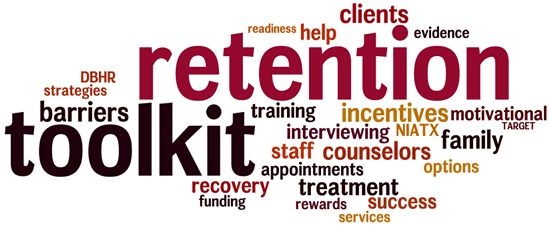The New Era of Addiction Treatment: Understanding Contingency Management in 2025 (Or: How I Learned to Stop Worrying and Love the Reward System)
As someone who's walked both paths – first as a person in recovery and now as a substance abuse counselor – I've seen addiction treatment evolve dramatically. And let me tell you, if someone had told me during my early recovery days that we'd be literally paying people to stay clean, I would've thought they were smoking something themselves. Yet here we are in 2025, and that's exactly what's happening – with impressive results.
A Game-Changing Policy Shift (Finally!)
Remember when getting treatment was harder than finding a decent cup of coffee at 3 AM? Well, the Biden administration just eliminated a major barrier to contingency management, and it's about time. The big news? SAMHSA has increased the annual incentive cap to $750 per patient. That's right – we're now officially allowed to reward recovery with more than just a pat on the back and a stale cookie.
For those wondering what CM actually is (besides an excuse for my dad to say "back in my day, we just called it willpower"), think of it as a treatment approach that rewards recovery milestones. And no, it's not just throwing money at the problem – it's actually science-based, and it's proving to be one of the most effective treatments we have, especially for stimulant use disorders.
Addressing the Elephant (and Other Skeptical Animals) in the Room
Let's tackle the questions I get from both clients and fellow professionals – usually delivered with that "yeah, right" look I used to give my first counselor:
"Isn't This Just Bribing People to Stay Clean?"
Trust me, I had the same thought when I first heard about CM. But here's the thing – research consistently shows that external rewards actually help build long-term recovery habits. It's like learning to ride a bike – except instead of a helmet, you get gift cards, and instead of scraped knees, you avoid relapse. Win-win.
"What Happens When the Money Train Stops?"
Ah, the million-dollar question (though technically it's more like the $750 question now). Here's what I tell my clients: Think of CM like training wheels for your recovery bicycle. Eventually, you'll be doing wheelies in the parking lot of life without even thinking about the rewards. The data backs this up – by the time the program ends, most people have built solid recovery habits that stick.
The Numbers Don't Lie (And Neither Do Drug Tests)
Let's get nerdy for a minute, because the statistics are actually pretty mind-blowing. Recent studies show that CM programs are producing some of the highest success rates in addiction treatment, particularly for stimulant use disorders. And now we're seeing even better results thanks to technology – digital CM programs and smartphone apps are making it easier to track progress and distribute rewards.
What's really cool (and I mean actually cool, not "your aunt's Facebook memes" cool) is how we're implementing CM in 2025:
- Instant rewards through digital platforms
- Personalized milestone tracking
- Integration with other treatment methods
- Real-time progress monitoring
A Personal Note (Because We're All Human Here)
Look, I've been on both sides of this desk. I remember sitting in treatment thinking, "These people have no idea what this is really like." Now I'm the person behind the desk, and sometimes I still can't believe we've come this far. The research shows about 75% of people who develop an addiction do recover, and tools like CM are helping push that number even higher.
Looking Forward (Without the Rose-Colored Glasses)
The expansion of CM coverage and accessibility marks a significant shift in how we approach addiction treatment. It's like we finally realized that maybe, just maybe, positive reinforcement works better than shame and judgment (who knew?).
For anyone considering treatment or working in the field, I encourage you to learn more about CM. Whether you're a potential client or a fellow professional, understanding these developments could open new doors in your recovery journey or practice. And hey, if nothing else, it's probably the only time someone's going to pay you to pee in a cup.
Remember, the best treatment is the one that works for you or your clients. With these new policies and growing evidence supporting CM, we have another powerful tool in our recovery toolkit. And that's something worth celebrating – with or without a reward voucher.
P.S. - If you're reading this and thinking about getting help, do it. The hardest part is walking through that first door, but I promise you, it gets better. And now, it might even pay off – literally.-Belle-






No comments:
Post a Comment